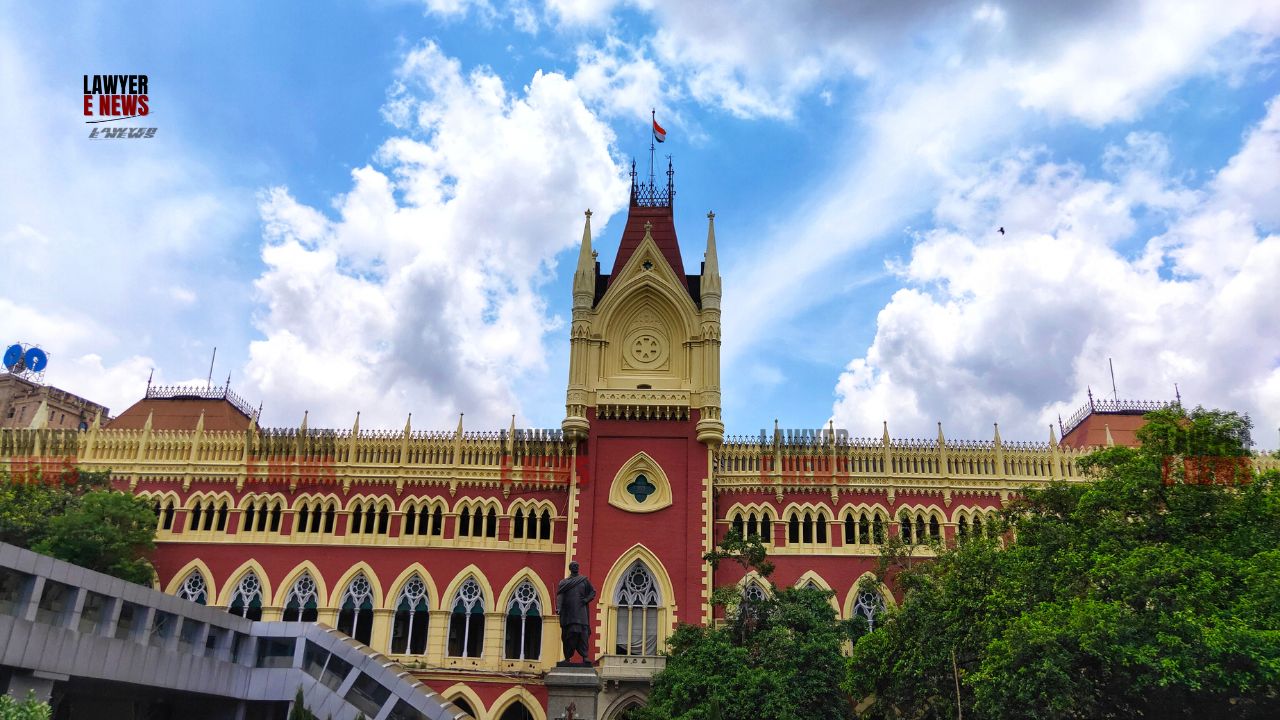-
by sayum
14 February 2026 2:22 PM



In a significant judgment, the Calcutta High Court has resolved a contentious dispute over academic ranking in Burdwan University by ordering the university to award Gold Medals to both the petitioner and the original rank holder. The judgment, delivered by Justice Kausik Chanda on September 9, 2024, found that the retrospective application of a university resolution affecting the post-publication review process was improper. However, the court stopped short of fully reversing the results, citing practical limitations, and ruled that both students deserve recognition.
The case centered on the awarding of ranks in the Master's Degree program in Sociology at Burdwan University for the 2016-2018 session. Respondent No. 7 originally secured the first rank with a Cumulative Grade Point Average (CGPA) of 7.29. After a review of her final semester papers, her CGPA dropped to 7.23, lowering her rank to second place. The petitioner, Alisha Wahid, who initially had a CGPA of 7.24, was promoted to first place.
However, the University, in a suo motu review of Alisha Wahid's results, further lowered her CGPA to 7.18, reinstating Respondent No. 7 as the first rank holder. The review was based on a resolution passed by the University's Executive Council on December 24, 2018, mandating automatic reviews of all top-ranking students’ answer scripts if a post-publication review changed their standings.
Wahid contended that the suo motu review was conducted unfairly, without her consent, and applied a new rule retrospectively, which affected her chances for the Gold Medal. She argued that the review process, initiated under a resolution passed after her results were declared, violated her rights and was contrary to the principles of natural justice.
Justice Chanda highlighted that the resolution dated December 24, 2018, which mandated a suo motu review of the top three rankers' results, could not be applied retrospectively. Wahid’s final results had already been published before this resolution was passed. The court observed, “The University should not have conducted a suo motu review of the petitioner's fourth-semester papers based on the resolution dated December 24, 2018.”
The University failed to produce any notification or order that amended the post-publication review process prior to Wahid’s results, reinforcing that the new review guidelines could not legally affect her standing.
Despite finding the retrospective application of the review unjust, the court declined to reverse the rankings to their pre-review status entirely. Given that Respondent No. 7, after the post-publication review, had attained a CGPA of 7.24 (higher than the petitioner’s 7.18), the court ruled it would be inequitable to displace Respondent No. 7 from her first-place ranking.
However, in the interest of fairness, the court took the exceptional step of directing Burdwan University to award Gold Medals to both students. “To achieve justice in the peculiar facts of this case... the writ petitioner should also be awarded a Gold Medal as a special case but her position in the merit list will remain second,” the court concluded.
Justice Chanda emphasized that the retrospective application of rules affecting an individual's vested rights is impermissible unless explicitly authorized. The petitioner’s final results, published before the resolution's enactment, should not have been altered by a subsequent rule change.
Furthermore, the court noted that the university’s reliance on the judgment in Sanchit Bansal v. Joint Admission Board (2012) to justify its actions was misplaced. While administrative decisions generally fall outside the scope of judicial review, any such decisions must still conform to established legal principles, including fairness and non-retroactivity.
This judgment serves as an important precedent on the limits of administrative authority in academic settings, particularly regarding retrospective rule applications. While it preserves the integrity of university policies aimed at ensuring transparency in rank allocations, the court also protected the rights of students affected by arbitrary changes. By mandating dual Gold Medals, the decision underscores the need for equitable solutions in complex academic disputes.
Date of Decision: September 9, 2024
Alisha Wahid vs. The State of West Bengal and Others
